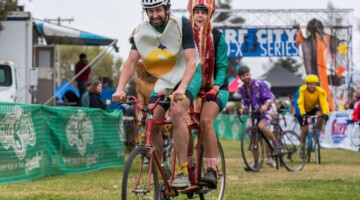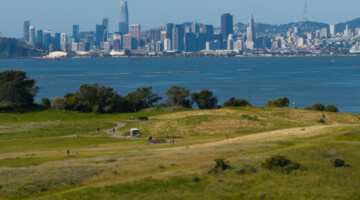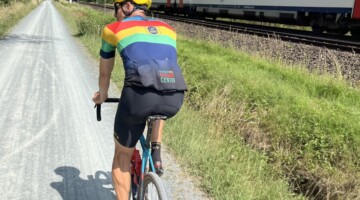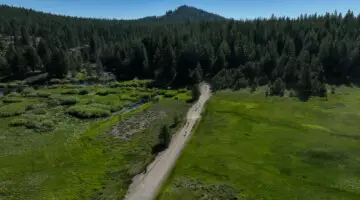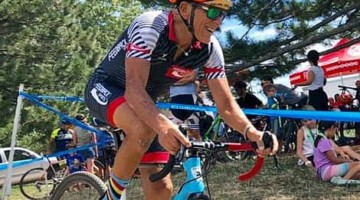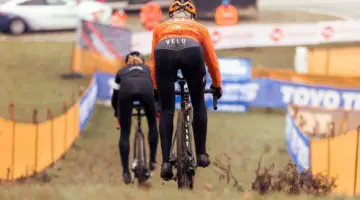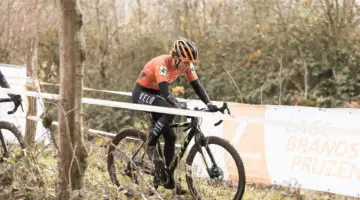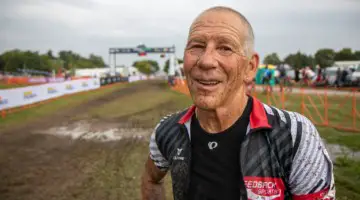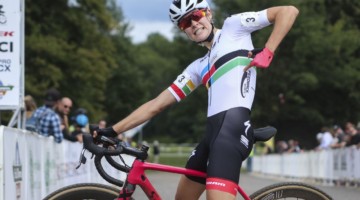Intense cycling efforts like those required in cyclocross create special demands on the body’s energy systems, and training and race-day preparation start long before you get on the bike. In today’s Training Tuesday, Coach Chris Mayhew talks to nutritionist Kristen Arnold about how cyclocross racers should approach nutrition during the ’cross season.
Nutrition is fundamental to training for cycling. You can’t execute the hard training you need to improve if you don’t fuel properly to support the effort. As such, it’s a topic that I, as a coach, need to know some things about but can’t know everything about. For topics like nutrition and others, I refer clients to experts in the field and let them guide the way.
This year I hired Kristen Arnold to help me with my nutritional needs. This means I primarily paid someone to tell me I don’t eat enough vegetables, but everyone starts somewhere, right? Most of my clients report they eat well but feel they could eat better. I think that’s hanging over most of us as cyclists.
For today’s Training Tuesday column, I am going to turn the show over to Kristen by asking her some questions on fueling for cyclocross training and racing.
Discussion with Kristen Arnold, RDN, About Cyclocross Nutrition
Chris Mayhew: What do you do professionally? I know you wear a couple of hats. And how did you get to where you are?
Kristen Arnold: Professionally, I race bikes for Velo Classic p/b Stan’s NoTubes domestic elite women’s race team, own a private practice nutrition counseling business called Kristen Arnold RDN, LD, MS and coach cyclists with Red Kite Coaching. I am a Registered Dietitian Nutritionist with a Master’s of Science in Human Nutrition from The Ohio State University. I got to where I am today by going to school for eight years studying nutritional sciences and riding and racing bikes for the last five years.
CM: What’s the biggest mistake you see people making with regards to nutrition?
KA: The mistake I see most often is athletes not drinking enough fluids before, during and after training and racing. Water and electrolytes are necessary for almost every system in the body, and the body is unable to function without them. I see this in nutrition and coaching, as many of my clients come to me saying they feel sluggish or their heart rate was higher than normal or they have digestion issues or headaches or greater fatigue after training and racing. Drinking water with electrolytes—either from food or sports drinks—to replace fluids lost during and after training and racing is essential. This can be done by performing a sweat test and figuring out how much fluids were lost.
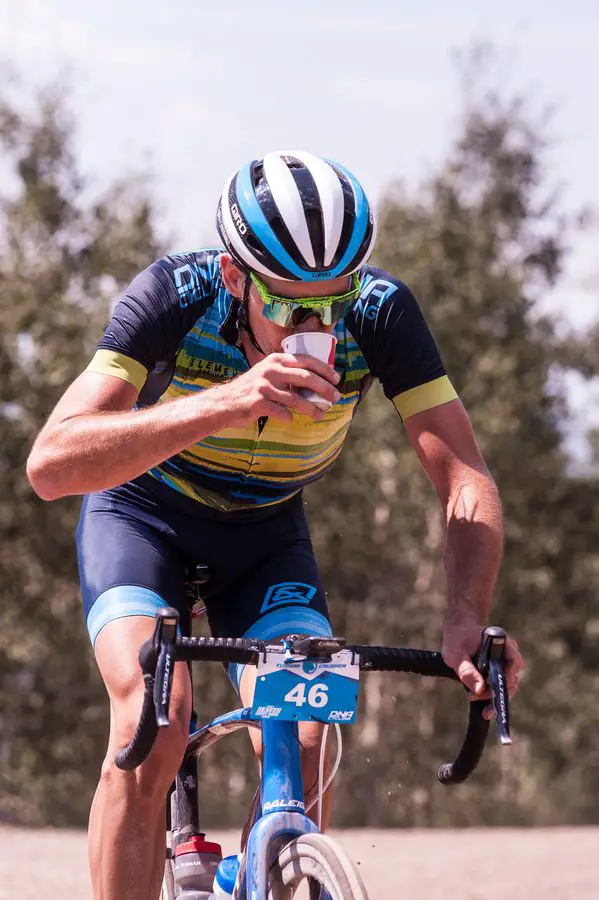
Drinking enough fluids on and off the bike is an important part of a successful workout or race. Jamey Driscoll, 2017 Crusher in the Tushar © C. See
CM: What do you see as the key differences between cyclocross racing and training and the summer and base season?
KA: Macronutrient maneuvering and timing of food before training or racing. Cyclocross training and racing, for the most part, requires glucose from the blood and glycogen from muscles and the liver. Anaerobic and intense aerobic efforts like these rely on carbohydrates. During the road and base seasons, fat plays a bigger role in fueling efforts. Many athletes I work with choose not to focus so specifically on their diet and pay attention to grams of macronutrients—carbohydrate, fat, protein—and so I generally recommend these clients eat a healthy well-balanced diet with nutrient-dense foods and then also dial in their pre-race nutrition. Eating before a 45-minute all-out workout or race is different than eating before a 4-hour training ride. Figuring out what works for each individual to avoid digestion issues and get the nutrients he or she needs can be a balance and takes trial and error.
CM: A lot of ’cross races are held at venues with limited food available. How would you address that?
KA: Prepare before the race! Buy a cooler and stock it full. Bring snacks that are enjoyable to eat before and after races. Examples could include apples, bananas, dried fruit, whole grain crackers, nuts, baked potatoes or sports bars. A post-race meal like an easy sandwich or pasta with fish that is already prepared is also a good option. Finally, do not forget to bring enough water to drink before, during and after the race. I recommend at least one gallon.
There’s nothing worse than getting to the car on the verge of bonking and then actually bonking after realizing there is nothing to eat and then trying to load the car up and get to a restaurant one hour away. Also, don’t make the mistake of packing food that is not enjoyable. In my experience, a dry peanut butter and jelly sandwich after a blazing hot hour of power is not always the most enticing food to eat.
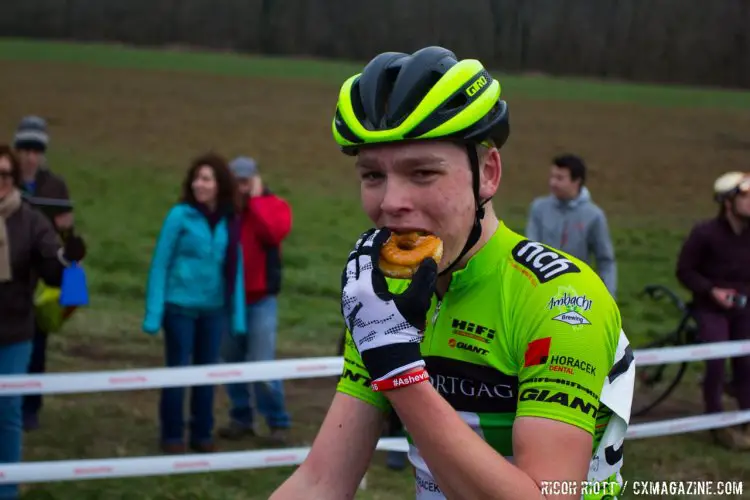
Proper nutrition is important for cycling success. 2016 Cyclocross National Championships. © Cyclocross Magazine
CM: What’s your indulgence? What’s your go-to store-stop food under $1?
KA: I have too many indulgences to name. I like all kinds of sweets from candy to milkshakes and definitely enjoy them on occasion. I try to fit them into long road rides with a coffee stop mid ride or an ice cream stop post ride. I’ve also been known to carry Haribo candy on rides.
I also have a soft spot for an Arnold Palmer, and not because my last name is Arnold. The sugar from the lemonade and caffeine from the iced tea provide a good mid-ride fuel as well as tartness and bitterness that are a nice contrast to sweet sports food.
CM: Thank you for your time and insight.
KA: You’re welcome.
Need more training advice to prepare for the cyclocross season? Check out our Training Tuesday pieces from Coach Mayhew and others.





